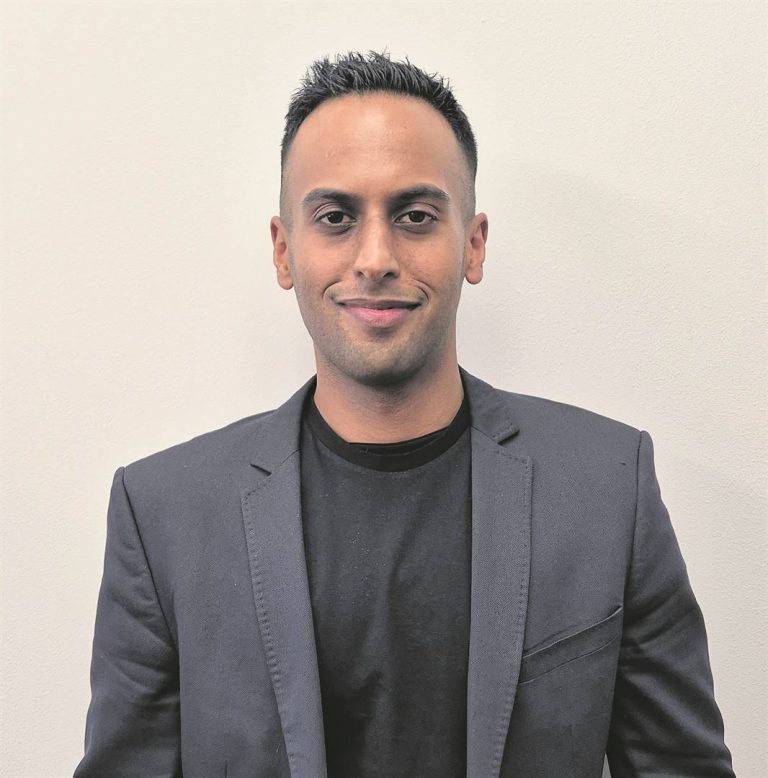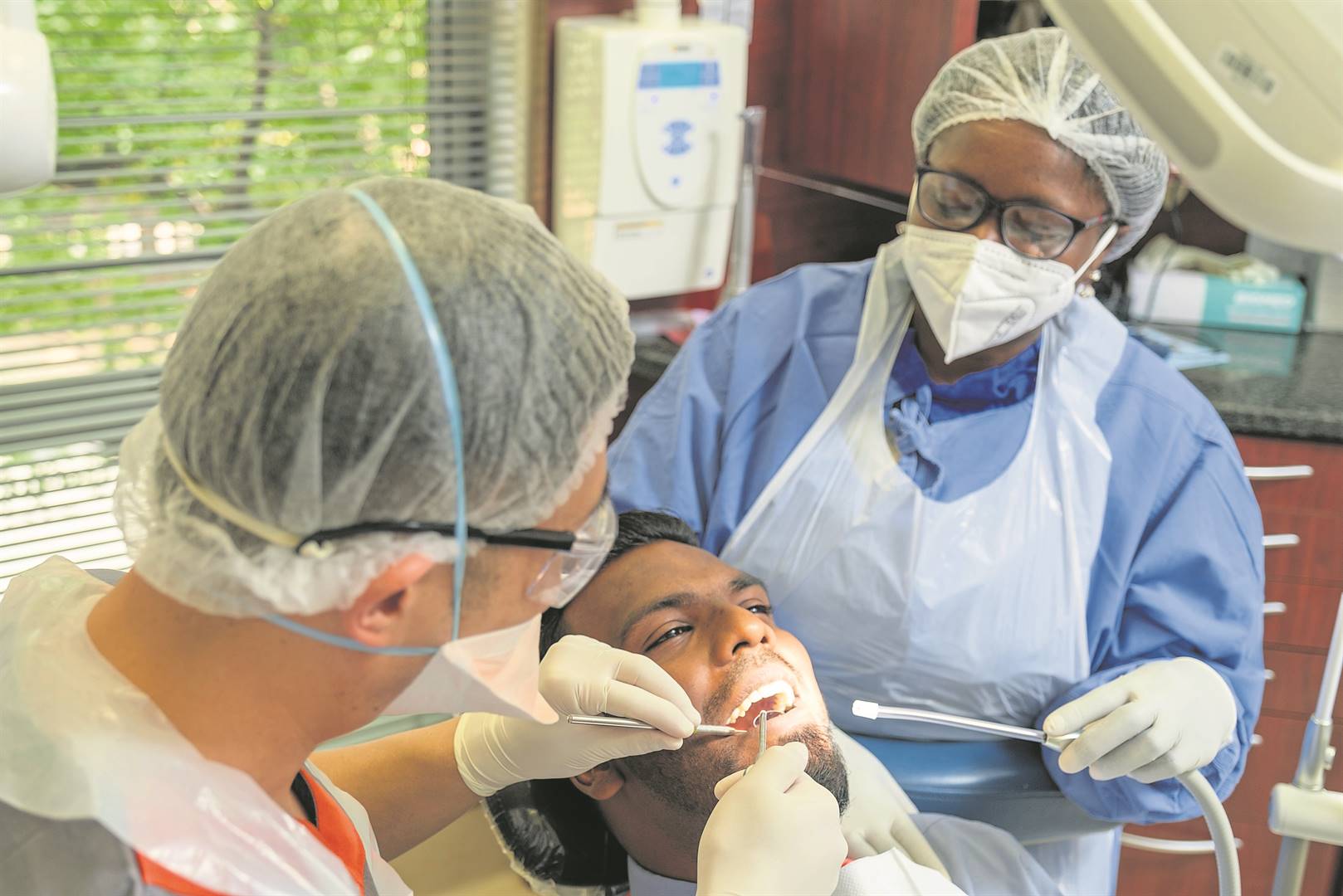Dentist Dr Rahul Gathiram says that getting your child to the dentist early lays the foundation for a lifetime of good oral care habits and helps them get used to the dentist’s office, making visits stress-free in the future. Ultimately, children with healthy teeth can usually chew food easily, learn to speak clearly, smile confidently, and keep their teeth into old age if they continue to practice good oral and dental care.
National Oral Health Month and the Spring it brings is a timely reminder that you’re never too old or too young to take dental health seriously. Know the dental priorities for your age group – your good health may depend on it.
“Neglecting oral care isn’t just a risk for tooth decay and gingivitis – poor dental hygiene can potentially open the door to serious healthcare issues such as heart disease, diabetes and respiratory infections,” warns Dr Rahul Gathiram, dental director of of Netcare Medicaros medical and dental centers. .
Baby steps: The oral health journey begins in infancy. Cleaning your baby’s gums is essential even before the first tooth erupts to prevent bacteria build-up.
“It’s important to celebrate the arrival of your child’s first tooth,” she said, “which usually happens around 6 months of age and, in most cases, is a lower central incisor. This is the perfect time to introduce a brushing routine using a soft toothbrush and some baby toothpaste.”
He advises parents to start introducing their children to the dentist as early as six months after the first tooth erupts, as tooth decay can occur at any time. “Early dental visits, ideally by a child’s first birthday, are not only to check for cavities and developmental problems, but also to educate parents about good oral hygiene practices.”
To avoid tooth decay as a result of bottle feeding and misalignment of teeth due to sucking, try to wean your baby from the bottle by the age of one year and monitor excessive pacifier, finger and finger sucking. thumbs. Try to avoid giving your child a bottle of milk at bedtime or bedtime, and never give them juice or sugary liquid at that time.
“Getting your child to the dentist early lays the foundation for a lifetime of good oral care habits,” says Gathiram, “and helps them get used to the dentist’s office, making visits stress-free in the future. Ultimately, children with healthy teeth can usually chew food easily, learn to speak clearly, smile confidently, and keep their teeth into old age if they continue to practice good oral and dental care.
“It’s important to note that the timing of teething can vary for everyone, so don’t worry too much if your little one takes a little longer to get their first tooth. Remember, baby teeth are sockets for adult teeth. So limiting sugary snacks and drinks is important to prevent early tooth decay.
Growing up: “From early childhood to adolescence is an exciting time in your child’s development and, on the dental front, children begin to lose their baby teeth at around age six and by the age of 12, most of their permanent teeth they will rise.
“The first permanent tooth to appear is usually the first molar right at the back of the mouth. This makes it especially important to make sure your child gets right to the back of their mouth when brushing their teeth.”
Generally, the first baby teeth to fall out are the incisors, either upper or lower.
“It is vital to encourage children to brush their teeth twice a day and to clean the front, back and chewing surfaces of each tooth. It is also recommended that children start flossing between all teeth at least once a day. Regular dental checkups every six months are essential at this stage of rapid change in the mouth.
“Taking your child to the dentist is the best way to prevent problems like tooth decay and malocclusion or crooked teeth from an early age. Dentists can also determine their fluoride needs. As they grow, fissure sealant – a durable sealing resin applied to caries-prone fissures on the chewing surfaces of permanent teeth is often recommended by your dentist when permanent teeth appear in the mouth.
“The teenage years bring their own dental challenges, such as orthodontic treatments and an increased risk of tooth decay due to dietary choices. Braces or removable appliances are often recommended during this time to correct misalignments and ensure proper bite function.”
prime time: As individuals move into adulthood, good oral hygiene habits developed during adulthood should continue. Brushing twice a day and flossing daily are vital to preventing gingivitis and tooth decay. Regular dental checkups and cleanings are also needed to keep smiles bright and healthy.
“It’s important to know the impact that lifestyle choices, such as smoking and diet, have on oral health,” said Gathiram. “Tobacco use can lead to gum disease, tooth decay and mouth cancer. Consuming sugary drinks and snacks, on the other hand, can lead to enamel erosion and tooth decay. Dental problems such as impacted wisdom teeth and gum disease are common in this age group and should be treated early.
Golden Years: “Getting older doesn’t mean the end of your oral health journey, no matter what your age, good oral hygiene habits are always important. Stay alert for dental problems, such as gum disease and tooth loss, that can occur with age. Regular visits to your dentist are essential as they can help you deal with the unique oral health challenges of your golden years.”
According to Harvard Health as people age they face new challenges in maintaining oral health. Medications can cause dry mouth, increasing the risk of tooth decay and gingivitis. Older people are also more prone to oral cancer, which requires regular checkups. Maintaining a diet rich in calcium and vitamins can help maintain healthy teeth and gums, and it’s important to continue to visit the dentist regularly for cleanings and checkups to address these issues right away.
Keep it simple and manageable: “Don’t avoid your dentist,” says Gathiram, “schedule regular checkups if you don’t already. We are fortunate to live in an age where modern dental techniques and tools, highly effective local anesthetics, and specialized tools and treatments virtually guarantee that dental visits and procedures will not be traumatic. Many patients look forward to their biannual visit, arriving with wonderfully clean teeth and knowing that their oral health is under control. Every smile has its own unique journey. let’s make it healthy.”


